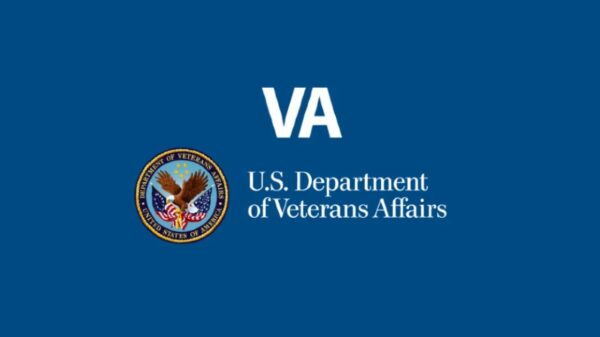This week, U.S. Sen. Rick Scott, R-Fla., joined U.S. Sen. Todd Young, R-Ind., and other Senate Republicans in sending a letter to President Joe Biden expressing deep concern about the rise in terrorists crossing the southern border and asking for plans to bolster border and internal security measures.
Nine other Republican senators signed the letter which is below.
Dear President Biden,
The recent brutal and reprehensible attacks by Hamas against Israel underscore the importance of vigilance against global terrorist groups both internationally and domestically. As President of the United States, we expect you to take every necessary step to ensure the protection of the homeland and to both prioritize and resource this task accordingly. However, the nature of the foreign challenge, combined with vulnerabilities at home—starting at our Southern border—warrant a proactive and comprehensive assessment.
Our Southern border is a matter of deep national concern and insecurity. With rising violence and economic crises around the world pushing many people towards our borders, the record levels of illegal crossings and the spike in Border Patrol apprehensions of individuals matching the U.S. terror watchlist are alarming. In fiscal year 2023 alone, 169 migrants with positive terrorism watchlist matches were apprehended along our Southern border. This represents a tenfold increase from the figures reported in fiscal year 2021.
Although the exact affiliations and identities of these individuals remain classified, the marked increase is alarming. Even if these apprehensions represent a minority, the potential devastation from a single individual with malign intentions cannot be overstated.
Given the current geostrategic challenge and potential threats, we request that your Administration provide Members of Congress a senior-level classified briefing to discuss your plan and intentions to support the security of the homeland, including clarification to the following:
Given the ongoing conflict between Israel and Hamas, and the possibility that Hamas or other regional terrorist organizations may seek to expand the conflict and incite further violence against the United States, how have you assessed any changes in threats to the homeland?
What proactive initiatives are underway to bolster the security protocols at our Southern border, especially in light of the increased apprehensions related to the U.S. terror watchlist and threats of violence by leaders of U.S.-designated terrorist organizations?
With the possibility of hundreds of thousands of individuals having entered the country undetected in the past two years, what measures are being implemented to address this significant blind spot and to ensure that potential threats are identified and neutralized?
How are key national security agencies, such as the Federal Bureau of Investigation (FBI), U.S. Customs and Border Protection (CBP), the Transportation Security Administration (TSA), and the Cybersecurity & Infrastructure Security Agency (CISA), being primed to preemptively detect and counteract threats from designated terrorist organizations, especially those that stem from
potential border vulnerabilities?
Are there plans to conduct a comprehensive review of current security protocols to identify potential loopholes or areas of improvement?
What collaborative steps is the Administration taking with our neighbors to enlist their support in sharing information and intelligence against designated terrorist organizations, given mutual security objectives and possible vulnerabilities?
How is the Administration working to track and block financial channels that may support terrorist activities and infiltration at our Northern and Southern Borders and ports of entry?
Hamas’ devastating attack, combined with its ties to entities such as the Iranian government and Hezbollah, underscores the necessity for a comprehensive assessment of its potential to reach targets beyond the immediate region. Its active publication of digital propaganda, reminiscent of ISIS strategies, further complicates this picture and potentially expands its scope of influence. These narratives, capable of reaching audiences beyond the Middle East, have the potential to inspire or influence disaffected individuals within our borders and those of our allies and partners.
In addition, FBI Director Christopher Wray has commented about the challenges posed by “copycat” actors, noting on October 13, “[I]n this heightened environment, there’s no question we’re seeing an increase in reported threats, and we’ve got to be on the lookout, especially for lone actors who may take inspiration from recent events to commit violence of their own.” Indeed, numerous acts of terror on U.S. soil, reminiscent of the ISIS-driven attacks in San Bernardino, Orlando, and New York from 2015 to 2017, have primarily been executed by domestic individuals or lawful immigrants, rather than foreign infiltrators. The call for a “Day of Rage” by Hamas leadership must be seen as an incitement to violence, and underscores the need to remain vigilant against “copycat” actors or radicalized individuals. International terrorist organizations likely recognize that their effectiveness is increased by inspiring individuals already within our borders as opposed to breaching them.
Given these considerations, we urge you to reassess, reinforce, and bolster our border and internal security measures. In light of the seriousness of these potential threats and the likely need for additional resources, we request that you ensure senior administration officials brief Members of Congress no later than November 8 with any findings and recommendations, to ensure a coordinated and informed response.
The consequences of lapses in security can be catastrophic. We must be proactive and not wait for tragedy to strike before taking decisive action. We stand ready to support any measures and initiatives that prioritize the safety and well-being of our nation and its citizens.





















